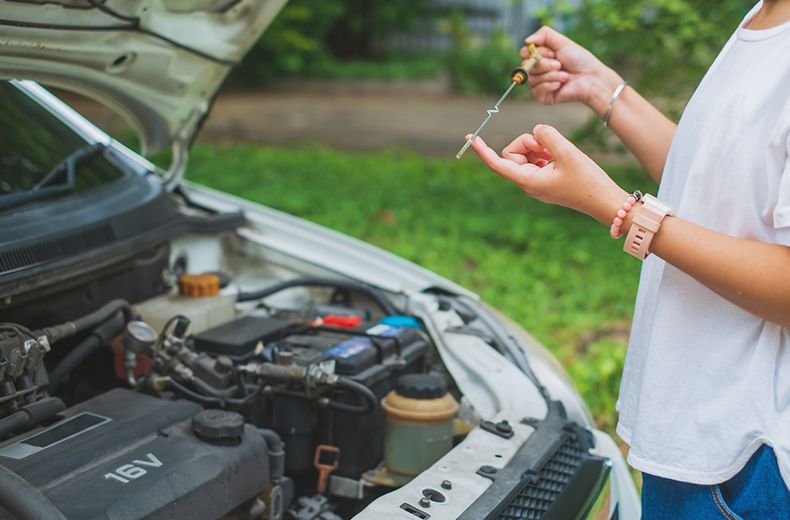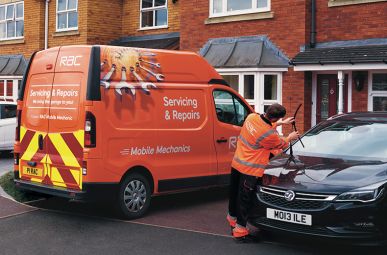RAC research^ found that just a fifth of drivers (19%) say they always check their cars are ‘road-ready’ for making a trip, increasing the potential for breakdowns. Half of drivers (51%) said they sometimes check their cars over before setting out but an alarming 30% said they never do. The RAC is therefore reminding people of the importance of spending some time checking their vehicles’ oil, coolant and tyres to ensure as many trouble-free journeys as possible.
Spending five minutes carrying out these simple checks every few weeks – and certainly before a long journey or an MOT – can save you a lot of time and money in the long run, not to mention help keep you safe on the roads.
To keep things simple, here are 12 simple car checks you can carry out today to keep your car safely on the road and on the right side of the law. To kick things off, here's RAC patrol Matt Woodbridge demonstrating four simple under-the-bonnet checks:
When it comes to preventing a breakdown, remember the acronym FORCES, which stands for Fuel, Oil, Rubber, Coolant, Electrics, Screen wash.
1. Fuel
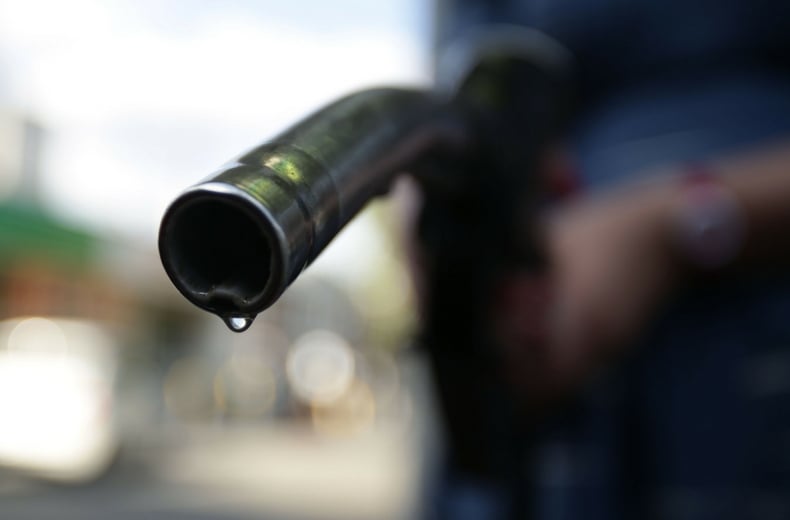
Check you have plenty of fuel in your tank for your journey. It may sound obvious but you’d be surprised just how many people run out of fuel, particularly in harsh winter weather.
Worried about running out? Here's our guide to saving fuel.
2. Oil
Our patrols check the oil level of every vehicle they attend and find one in three are dangerously low. This can cause a breakdown and lead to catastrophic engine damage if left unresolved.
Check your oil level is between the minimum and maximum mark on your car's dipstick and top up if necessary.
If you don’t know which type of oil you need to use, refer to your owner’s handbook or speak to your local dealer.
Service, repair or MOT?
You can trust the RAC with our local approved garages and NEW mobile mechanics.
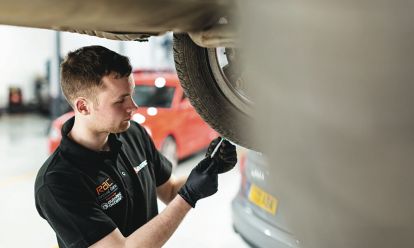

3. Rubber
When it comes to rubber, check both your tyres and wiper blades on a regular basis.
Check your tyres for general wear and tear, splits or bulges, and crucially tread depth. Minimum tread level is 1.6mm, although in winter it’s advisable to have 3mm of tyre tread to help with traction and grip.
Also ensure you’ve got the correct pressure in your tyres, checking your owner’s handbook if you don’t know the correct inflation.
Examine your wiper blades as these won’t last forever and need replacing from time to time due to splits and cracks.
In winter, you can prevent your wiper blades freezing to the windscreen by placing a thin sheet of plastic or cloth, between the wiper blades and the windscreen. Or you can try using de-icer or warm water to free them up before starting your engine.
4. Coolant
Check your car’s coolant level. The last thing you need is a frozen engine or for your car to overheat.
Although it’s a sealed system and shouldn’t need to be topped up, you should always double check, especially before a long journey.
Check your coolant levels when the engine is cold and look in your handbook for the correct coolant and mix to use should you need to top it up
5. Electrics
There are plenty of electrics in your car – from headlights and fog lights to your battery – and they all need to be checked regularly to keep you safe.
Have another person walk around the car and make sure your lights are all working, even the number plate lights, as you can be fined for having a registration that can’t be seen.
You should also check your battery, making sure the terminals are clean and tight (cleaning off any corrosion with hot water and applying petroleum jelly) and that the engine starts correctly.
Please note that petroleum jelly is an insulator and may hinder the conductivity of the terminals over time. A mechanic can point out products specifically designed for coating battery terminals. These products are formulated to prevent corrosion effectively, while also promoting optimal conductivity between the terminals and the cables.
If your engine struggles to start when you turn the key, get the battery checked out at a garage. If your battery is over four years old it may be getting to the end of its life and could let you down.
When you're having your battery tested, ask them to check the starting and charging system and whether anything is draining your battery – this will give a better picture of your car’s overall electrical health.
Knowing how to check your bulbs is vitally important for car owners - so stay on top of it.
If you are having your battery test ask them to check the charging system and the drain on your battery – this will give a better picture of your car’s overall electrical health.
Our RAC patrols deal with over 400,000 battery related faults every winter as the cold weather takes its toll on older tired batteries and the wet and ice conditions play havoc with the electrics. Batteries have to work that much harder in cold conditions and they have endure greater demand from extra electrical equipment like the lights and the heater.
6. Screen wash
Check your screen wash level in the tank under the bonnet, topping up if necessary with a quality screen wash additive or pre-mix, which you can pick up in most petrol stations.
Screen wash is important all year round. In winter snow and grit cause dirty windscreens, while in summer bugs and pollen can easily smear your view – so never put off checking your levels
Book a car service today
It’s easy to book a service online at one of our local approved garages. Find a trusted local garage with the RAC stamp of approval.
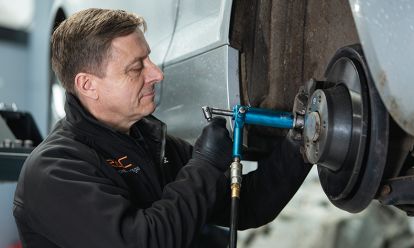

Aside from the vital FORCES checks, it’s also worth carrying out a few additional car maintenance checks on other parts of your vehicle to extend its life and avoid a breakdown.
7. Engine air filter
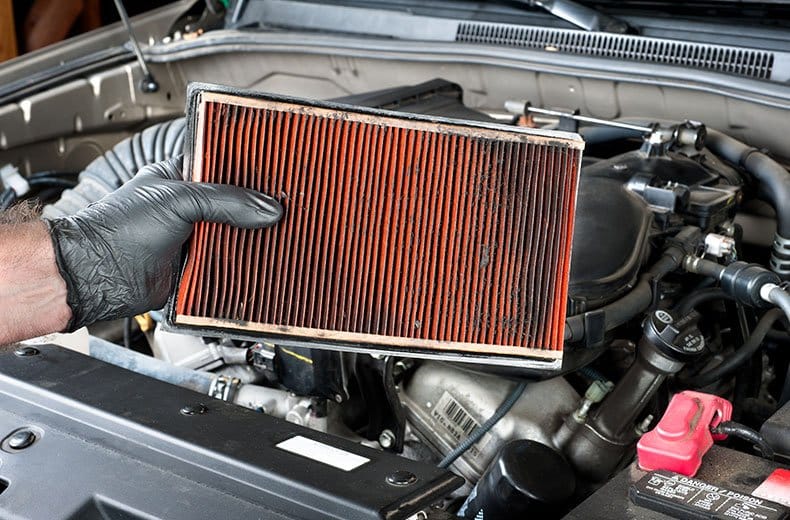
A faulty or clogged-up air filter could reduce your fuel efficiency and lead to reduced engine power, which is why mechanics recommend getting it replaced every 12 months or 12,000 miles, whichever comes first.
If you think your filter needs checking or replacing, simply locate the filter (usually in a black box under the bonnet) and remove it, making note of how it fits before you insert the replacement and fasten the box back shut.
Check your vehicle handbook for instructions.
8. Spark plug (petrol engines only)
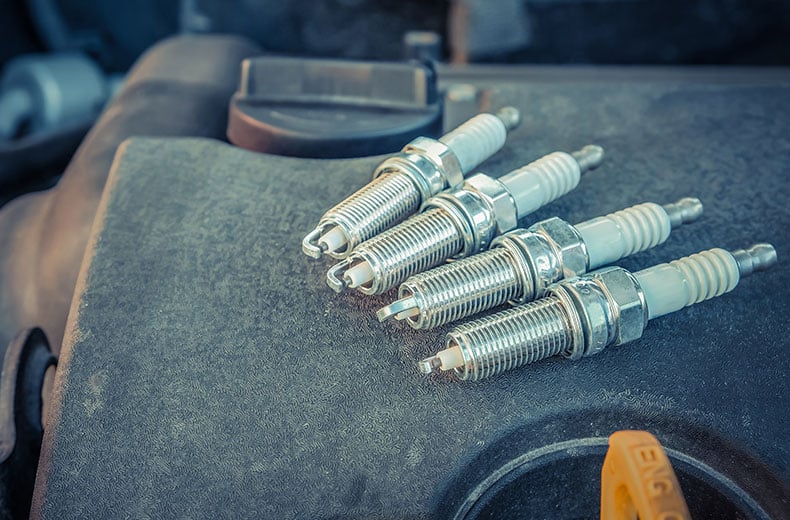
More of a replacement than a check, but spark plugs are integral to the running of your engine – one or more faulty plugs will cause an engine misfire so it’s worth knowing how to replace them.
Generally, spark plugs need replacing every 30,000 miles or so and you’ll need the right tools if you want to replace them yourself. Also check your handbook or consult a dealer to check that a DIY replacement is possible.
9. Brakes
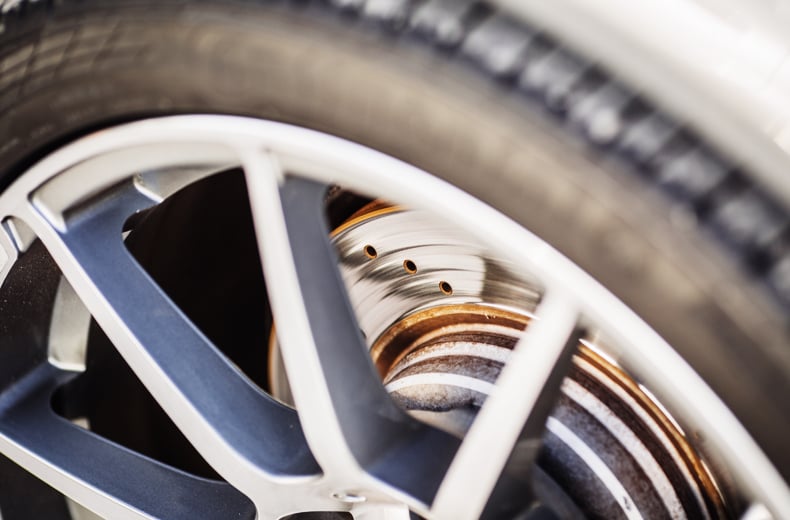
We should all understand importance of properly-functioning brakes, so keeping them maintained is essential, to avoid any expensive repair bills or potential repair failures.
Start off by checking the brake fluid level and if low, top it up – check your vehicle handbook for the correct fluid specification Be careful as brake fluid is corrosive, and if you feel unsure then get a professional to take a look at it.
Brake fluid should be changed at certain mileage intervals – again, check your handbook for service details.
10. Air conditioning
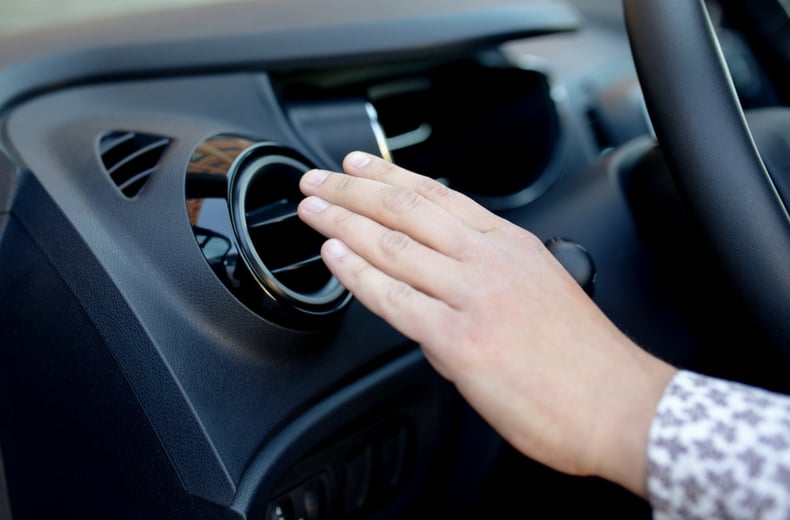
Whether it’s 35 degrees outside or barely breaking freezing, it’s essential your aircon unit is fully functioning. However, apart from visual checks of the pipework, there is not a lot for you to check yourself.
Aircon system servicing should be carried out by a competent person with the correct equipment. A typical complaint is when the aircon does not feel cool enough on hot summer days, this may indicate that the system requires re-gassing – specialist equipment is required and so should be entrusted to an authorised servicing centre
11. Interiors
No-one wants their car to be known as a “skip-on-wheels”, so keep things clean with a regular interior clean, clearing out your footwells, wiping down your dashboard and keeping only the essentials in your boot.
It’s not just about being a neat freak, a clean interior also keeps you safe on the roads – you don’t want any discarded bottles dangerously rolling underneath your pedals.
12. Exteriors
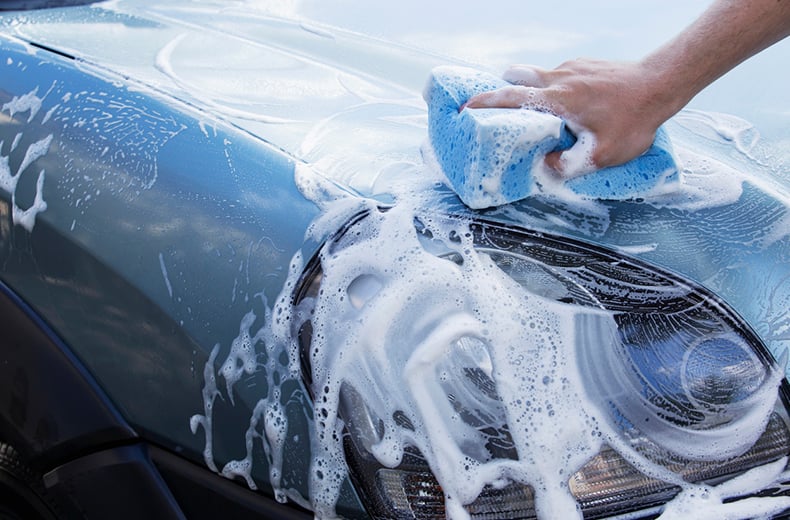
Keep the outside of your car clean with a regular wash. If you’re doing it by hand, focus on the headlights, brake lights and number plates as these help you see and be seen on the roads.
Keep all windows clean and clear at all times. As well as being unsafe, an unclean windscreen that limits your view of the road could see you fined for driving a car in a dangerous condition. Car cleaning is an essential part of owning a vehicle.
Should I take my car to a garage?
If you carry out these simple car checks, your car should stay on the road without seeing a mechanic for longer, but if a more serious problem arises you should always seek professional help.
When your car’s next due a service, you can count on your local RAC Approved Garage. Make sure you have RAC breakdown cover, van breakdown cover or business breakdown cover too!
Also, if you are carrying out maintenance, make sure you have the correct lubricants. Find out when your MOT is due with our free MOT checker.
Services we offer
- Breakdown Cover
- European Breakdown Cover
- Motorbike Breakdown Cover
- Electric Car Breakdown Cover
- Caravan, Motorhome and Campervan Breakdown Cover
- Business Breakdown Cover
- Van Breakdown Cover
- RAC Approved Garages
- Vehicle servicing
- Vehicle repair
- MOTs
- Mobile mechanics
- RAC Tyres
- RAC Approved Dealers
- RAC Shop
- myRAC app

